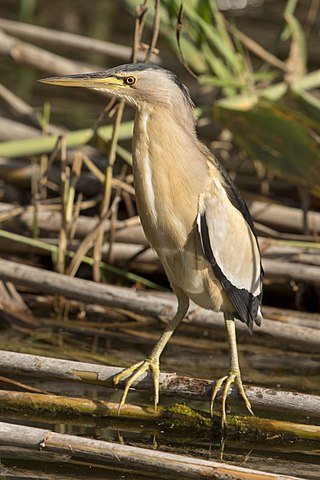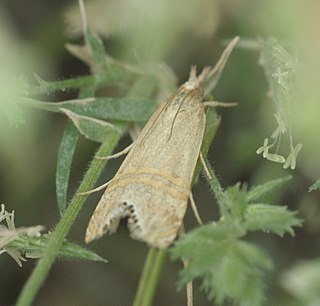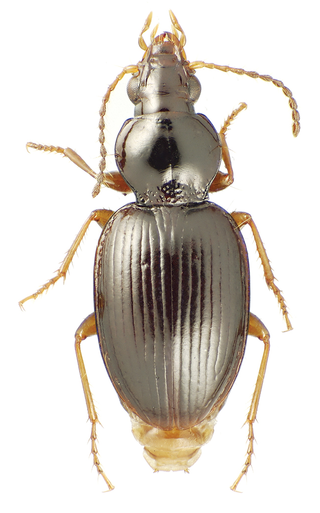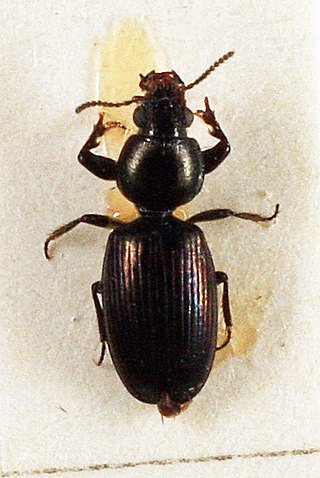
The little gull, is a species of gull belonging to the family Laridae which is mainly found in the Palearctic with some colonies in North America. It breeds on freshwaters and spends winters at sea. It is the smallest species of gull in the world and the only species in the monospecific genus Hydrocoloeus.

The little bittern is a wading bird in the heron family, Ardeidae. This species was formerly placed in the genus Ixobrychus.

The little curlew is a wader in the large bird family Scolopacidae. It is a very small curlew, which breeds in the far north of Siberia. It is closely related to the North American Eskimo curlew.

The harvest mouse is a small rodent native to Europe and Asia. It is typically found in fields of cereal crops, such as wheat and oats, in reed beds and in other tall ground vegetation, such as long grass and hedgerows. It has reddish-brown fur with white underparts and a naked, highly prehensile tail, which it uses for climbing. It is the smallest European rodent; an adult may weigh as little as 4 grams (0.14 oz). It eats chiefly seeds and insects, but also nectar and fruit. Breeding nests are spherical constructions carefully woven from grass and attached to stems well above the ground.

Micromys is a genus of small rodents in the subfamily Murinae. The genus contains two living species: the widespread Eurasian harvest mouse of much of Europe and Asia; and the more restricted Indochinese harvest mouse of Vietnam, southern China, and perhaps nearby regions. Fossils of Micromys date back to the Late Miocene and include at least 10 extinct species, which form several lineages.

The black noddy, also known as white-capped noddy, is a species of tern in the family Laridae. It is a medium-sized seabird with black plumage and a white cap that closely resembles the lesser noddy with which it was at one time considered conspecific. The black noddy has slightly darker plumage and dark rather than pale lores.

The Eurasian pygmy shrew, often known simply as the pygmy shrew, is a widespread shrew of the northern Palearctic.
Neacomys minutus, also known as the minute neacomys, the small bristly mouse, or the minute spiny mouse, is a rodent species from South America in the genus Neacomys. It is found in Brazil.

Gyraulus is a genus of small, mostly air-breathing, freshwater snails, aquatic pulmonate gastropod mollusks in the family Planorbidae, the ram's horn snails.

The lesser tube-nosed bat is a species of megabat in the family Pteropodidae. It is native to two of the Maluku Islands in northern Indonesia.

The minute fruit bat is a species of megabat within the family Pteropodidae. It is found in Sumatra, Java, Borneo and Sulawesi. C. minutus is a smaller species that lives in rainforests. Continuous bimodal polyoestry has seasonal reproduction. The females of the species reproduce in synchrony, giving birth to offspring 5–7 months apart throughout two separate seasons. Postpartum oestrus occurs after each parturition. In C. minutus, both sexes reach sexual maturity at around 7 months, and females give birth for the first time at around 12 months. Females start having children not long after reaching sexual maturity, and they effectively continue having children indefinitely. Relative to other fruit bats, C. minutus have high rates of reproduction.

Euchromius is a genus of moths of the family Crambidae. It was described by Achille Guenée in 1845.

Mecyclothorax is a genus of beetles that contains over 400 described species or subspecies, mostly from the Hawaiian Islands, and Tahiti and Moorea, French Polynesia. Additional radiations have evolved in Queensland, Australia, New Guinea and New Caledonia. The genus has been divided into five subgenera: Eucyclothorax Liebherr 2018 of Australia, Qecyclothorax Liebherr 2018 of Queensland, Australia, Meonochilus Liebherr & Marris, 2009 of New Zealand, Phacothorax Jeannel 1944 of New Caledonia, and the more widely distributed subgenus Mecyclothorax Sharp 1903 [in Australia, the Sundas, New Zealand, the Society Islands, and Hawaii]. The adelphotaxon to Mecyclothorax is hypothesized to consist of the genera associated with Amblytelus Blackburn, also distributed in Australia, and therefore the evolutionary history of Mecyclothorax commenced in Australia.

Psydrinae is a subfamily of beetles in the family Carabidae.

Dyschirius is a genus of beetles in the family Carabidae:

Alfred Nehring was a German zoologist and paleontologist. He was a founding professor of zoology at the Royal agricultural university in Berlin.
Mecyclothorax lateralis is a species of ground beetle in the subfamily Psydrinae. It was described by Castelnau in 1867.
Mecyclothorax lissus is a species of ground beetle in the subfamily Psydrinae. It was described by Castelnau in 1867.

Mecyclothorax rotundicollis is a species of ground beetle in the subfamily Psydrinae. It is endemic to New Zealand. It was described by White in 1846.
Beraeodes is a genus of caddisflies belonging to the family Beraeidae.














